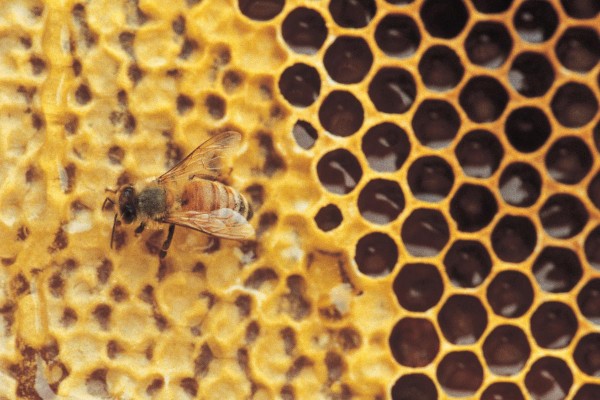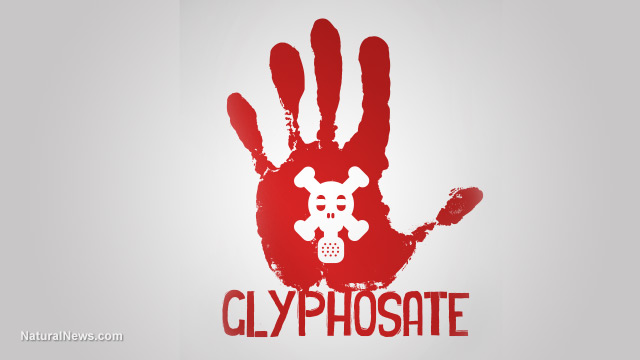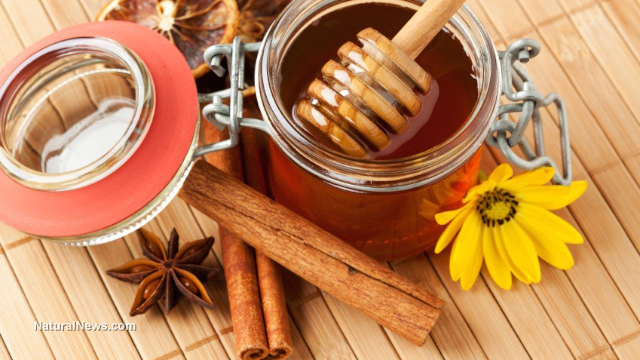




(NaturalNews) Not all honey is created equal. While the benefits of raw, unprocessed honey have been well-documented over the centuries, Australian researchers have found one type of honey, called Manuka honey, to be better than all known antibiotics.
Manuka honey is produced by bees that forage on the nectar of Leptospermum Scoparium, or New Zealand’s Manuka bush, as well as tea trees, native to Australia and New Zealand only.
This remarkable type of honey not only effectively kills bacteria, but none of the bugs killed by it have been able to build up immunity. In a world where many of the last resort antibiotics are failing against antibiotic-resistant superbugs, Manuka honey may hold the key to fighting resistance issues, saving thousands of lives worldwide.
Dr. Dee Carter from the University of Sydney’s School of Molecular and Microbial Biosciences noted that antibiotics not only have short shelf lives, but the bacteria they attack quickly become resistant as well, making them useless over time.
The report, published in the European Journal of Clinical Microbiology and Infectious Diseases, claimed that Manuka honey killed almost every bacteria and pathogen it was tested on. Unlike all antibiotics available on today’s market, none of the bugs tested were able to survive the honey treatment.
According to Dr. Carter, there are particular compounds, like methylglyoxal, in the Manuka honey that cause multi-system failure in the bacteria, killing them before they are able to adapt and build up immunity.
Manuka’s biological properties range from antioxidant, anti-inflammatory, antibacterial, antiviral, antibiotic and wound healing, to immune-stimulatory. However, what separates Manuka honey from the rest is that its antibacterial powers challenge even the toughest superbugs, such as the life-threatening methicillin-resistant Staphylococcus aureus (MRSA).
Manuka honey is marketed for cancer treatment and prevention, high cholesterol, chronic inflammation, diabetes, the treatment of gastrointestinal problems, and eye, ear and sinus infections. However, it might be most useful in treating skin wounds and leg ulcers.
According to one study, published in the scientific journal Peer J, chronic wounds are becoming a major global health problem, due to antibiotic resistance issues. They are costly and difficult to treat, and bacterial biofilms are important contributors to the delay in healing. There is an urgent need for new, effective agents in topical wound care, and honey has shown some great potential in this regard.
For their study, researchers reviewed Manuka honey in particular as an alternative treatment for wounds because of its broad-spectrum antibacterial activity and the inability of bacteria to develop resistance to it. Their study indicated that honey might prevent bacterial biofilms and eliminate established biofilms. Furthermore, they reported that Manuka honey could successfully be used to kill all MSSA and MRSA biofilms in a chronic wound, supporting the use of this type of honey as an effective topical treatment for chronic wound infections.
In recent years, word of the biological benefits of Manuka honey has spread to every corner of the world, turning it into one of the most popular superfoods out there. Its fame and the over-demand, however, have caused shortages, resulting in fake, usually cheaper, products to enter the market. So, if you are going to spend your money on honey to reap its benefits, make sure you are buying the real thing.
Sources:

(NaturalNews) The U.S. Food and Drug Administration (FDA) has been doing its best to protect Monsanto and the entire GMO industry by dragging its feet and hiding information regarding glyphosate content in foods.
Glyphosate, the most widely-used herbicide on the planet and an essential component in GMO agricultural methods, has been the subject of increasing concern - particularly since the World Health Organization (WHO) classified it as a "probable human carcinogen" in 2015.
For many years, the FDA avoided testing foods for glyphosate residue at all, parroting Monsanto's assurances that the herbicide poses no threat to human health, but under mounting public pressure it finally began conducting tests in February of this year.
Although the agency routinely tests foods for other pesticide residues, it has rather suspiciously left glyphosate off of the list until now.
From The Huffington Post:
"[FDA testing] came after many independent researchers started conducting their own testing and found glyphosate in an array of food products, including flour, cereal, and oatmeal. The government and Monsanto have maintained that any glyphosate residues in food would be minimal enough to be safe. But critics say without robust testing, glyphosate levels in food are not known. And they say that even trace amounts may be harmful because they are likely consumed so regularly in many foods."
And the results of the FDA's own tests are truly disturbing.
Documents obtained through the Freedom of Information Act (FOIA) reveal, for example, that glyphosate residue was found in all of the honey samples tested by the FDA - even honey marketed as being "100% all-natural." Some of the samples contained twice the European Union's allowable amount of glyphosate residue, and there is no allowable limit for glyphosate in honey produced in the U.S. - at least not yet.
This means that U.S. honey producers are technically in violation of the law - at least until tolerance levels are set by the FDA.
But the FDA doesn't seem to be in any hurry to set any tolerance levels for honey. In fact, internal emails obtained through FOIA requests reveal that although honey producers are technically in violation, the agency doesn't consider it important because "it is not a safety issue."
In other words, the FDA is still dragging its feet to do anything, and is not currently planning to either set tolerance levels, or hold honey producers responsible for violating the law. In a statement, the FDA said: "there is no dietary risk concern from exposure to glyphosate residues in honey at this time."
And, of course, it's not really the fault of the honey producers to begin with, since glyphosate use is so widespread and because beekeepers have no real control over where the bees collect the pollen used in making honey.
The emails and other documents obtained show that the FDA is aware of the "glyphosate controversy," but seems both unwilling and unable to do much about it, other than keeping its test results secret and continuing its stalling tactics.
But slowly, the truth is leaking out regarding the dangers of glyphosate and the fact that both the FDA and the USDA have been corrupted through the lobbying efforts of Monsanto and the GMO industry as a whole.
For years, the Frankenfood industry has managed to keep its dark secrets with the help of a sold-out federal regulatory system, but the public is finally waking up to the deception and the dangers posed to the health of virtually every person on the planet.
Nothing short of a worldwide ban on GMOs and the use of glyphosate is an acceptable solution - we must collectively continue to fight the Frankenfood industry until it no longer exists in the United States or anywhere else.
Sources:
HuffingtonPost.com
USRTK.org
OrganicAuthority.com
Learn more: http://www.naturalnews.com/055395_honey_glyphosate_FDA_emails.html#ixzz4L0BHTc00

(NaturalNews) Honey, often referred to as "liquid gold," houses a wide range of vitamins and minerals. It is a natural and healthier alternative to sugar to sweeten things up. It kills bacteria, viruses and fungi. It also lowers cholesterol and inflammation.
However, to reap all of honey's benefits, you should always buy local and organic, which comes from bees rather than from a factory. According to Food Safety News, more than 75 percent of honey sold in U.S. grocery stores isn't actually the same thing honey bees produce.
They sent over 60 different jars bought in 10 states and the District of Columbia to premier melissopalynologist and professor at Texas A&M University, Vaughn Bryant. They found the market to be flooded with fake Indian or Chinese honey which is banned in Europe for safety reasons. It is often contaminated with antibiotics or heavy metals, and doesn't contain any trace of pollen.
"Any product that's been ultra-filtered and no longer contains pollen isn't honey," states the FDA. However, nothing seems to be done about it, and fake, processed honey is still sold in grocery stores all over the U.S.
In the normal honey-making process, honey is filtered to remove contaminants, such as bee parts, waxes and other impurities. Nothing wrong there; nobody wants to chew on bee parts or wax, right?
Ultra-filtration, a technique refined by the Chinese, is a high-tech procedure in which honey is heated and pushed through extremely fine filters at high pressure. This technique not only removes contaminants, but pushes out the pollen and many other beneficial vitamins, minerals and enzymes, too.
Why would a company go through all these expensive filtration steps to end up with an inferior product, ripped of all its nutrients?
"Removal of all pollen from honey 'makes no sense' and is completely contrary to marketing the highest quality product possible," Mark Jensen, president of the American Honey Producers Association, told Food Safety News.
China is known to produce cheap honey diluted with inexpensive sweeteners such as high-fructose corn syrup. Many countries have banned Chinese honey, as it is all too often contaminated with antibiotics and heavy metals.
After a few big scandals, the U.S. decided to pose higher taxes on Chinese honey to push U.S. companies to buy real, locally produced honey.
But there is no stopping it. Chinese honey producers now launder their cheap, fake honey to another country, before shipping it to the U.S. In doing so, they avoid the higher import taxes, making it still cheaper than honey produced in the U.S.
To cover up this dirty honey laundering secret, ultra-filtration is needed. Pollen serves as a fingerprint; it can tell you exactly where the honey came from, and would trace it all the way back to China.
"We are well aware of the tricks being used by some brokers to sell honey that originated in China and laundering it in a second country by filtering out the pollen and other adulterants," said Eric Wenger, director of quality services for Golden Heritage Foods.
Ultra-filtration produces a crystal clear, easy-to-pour, yellowish liquid, while raw unprocessed honey is cloudier, and less pourable and spreadable. It can still contain small parts of the honeycomb, too.
If you are a honey lover, you should stick to buying honey from a local, organic farm or co-op.
According to the findings of Food Safety News, 76 percent of samples bought at grocery stores had all pollen removed. All samples coming from drugstores or single portion packages from fast food chains – such as KFC and McDonalds – had all pollen removed.
On the contrary, samples that came from farmers' markets, co-ops and natural stores like PCC and Trader Joe's, all had a decent amount of pollen and could be called real honey.
Sources for this article include:
FoodSafetyNews.com
JBANews.com
MyBeeline.co
Science.NaturalNews.com
Science.NaturalNews.com
Learn more: http://www.naturalnews.com/053218_honey_fake_processed_foods.html#ixzz42HPAx8Eg
If you get Migrain headaches, or have Arthritis this should interest you.
Chronic Migrain gone.
40 years of daily mugraines Cured....Miracle? By danmanning@ij.net on March 2, 1998
Add This Forum To Your Favorites!
Forum Stats:
forum viewed 281,602 times
235 messages
69 topics
topics per page limited to: 8
average number of messages per page: 29
8 pages
CureZone Newsletter is distributed in partnership with www.netatlantic.com
Copyright 1999 - 2024 www.curezone.org